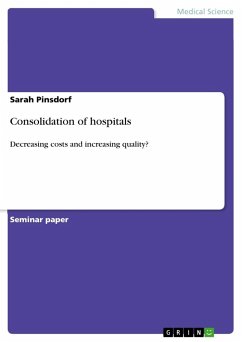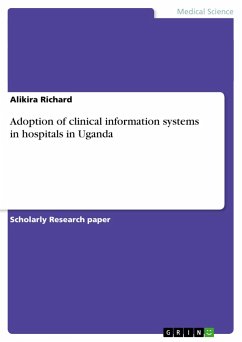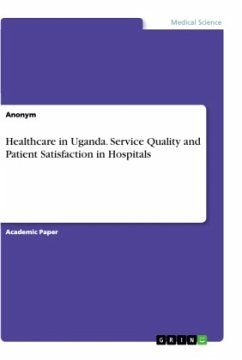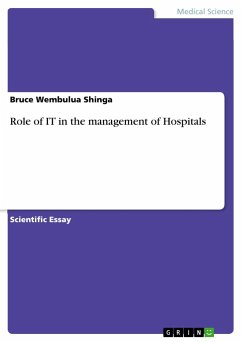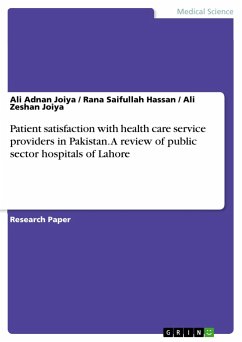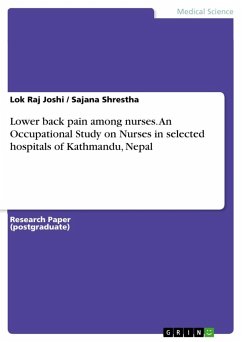Seminar paper from the year 2011 in the subject Medicine - Hospital Environment, Clinical Medicine, grade: 1,7, Fresenius University of Applied Sciences Köln, language: English, abstract: Increasing cost pressure, shortage of staff, investment backlog - more and more hospitals need to merge with others to survive. Apart from the decreasing capital investments of the federal states, especially the implementation of DRGs (Monopolkommission 2008, 313) and the possibility of integrated health care lead to an enormous cost pressure.In Germany, there is a dual hospital funding. The costs of operation are beared by payments of health insurance funds. Investment costs for new buildings or the replacement of capital goods are payed by the federal states. However, these allowances of investment are on the decrease for years, which leads to investment backlogs in hospital (Augurzky et al. 2009, 93). This implies that hospitals are supposed to invest, but their funds are too small to do so. In the long run, the economic efficiency suffers because it cannot compete with other hospitals regarding the technological progress (Augurzky et al. 2009, 13). The introduction of DRGs [Diagnosis Related Groups], the basis of calculation for hospitals, lead to an increasing pressure of working economically. In the old system, every day of a patient's stay in the hospital was refunded based on same-day hospital and nursing charges. In the new system, only occupant days within a predetermined period of hospitalization. The preterm discharge or a discharge exceeding the period of hospitalization results in discounts in payments, which often do not allow cost recovery (Eveslage 2006, 37-39). Accordingly, hospitals are under pressure to treat their patients fast and discharge them within the preset period. This requires efficient and economical operations. An additional burden is the growing competition in the sector of ambulatory care. As a result of the strong medical progress, moreand more operations, which were formerly bound to be performed in hospital, can nowadays be done ambulant. Another innovation in the German health care system are medical service centers [Medizinische Versorgungszentren]. They will soon be capable to take over the primary health care in rural areas and replace major hospitals there, because they are able to work more economic (Augurzky et al. 2009, 162). On the whole, the pressure on hospitals increased steadily in the past years. Many hospitals are not capable to assert themselves on the market under today's conditions solitary. 12 per cent of the economically weak hospitals are expected to shut down by 2020. (Augurzky et al. 2009, 124).
Hinweis: Dieser Artikel kann nur an eine deutsche Lieferadresse ausgeliefert werden.
Hinweis: Dieser Artikel kann nur an eine deutsche Lieferadresse ausgeliefert werden.

